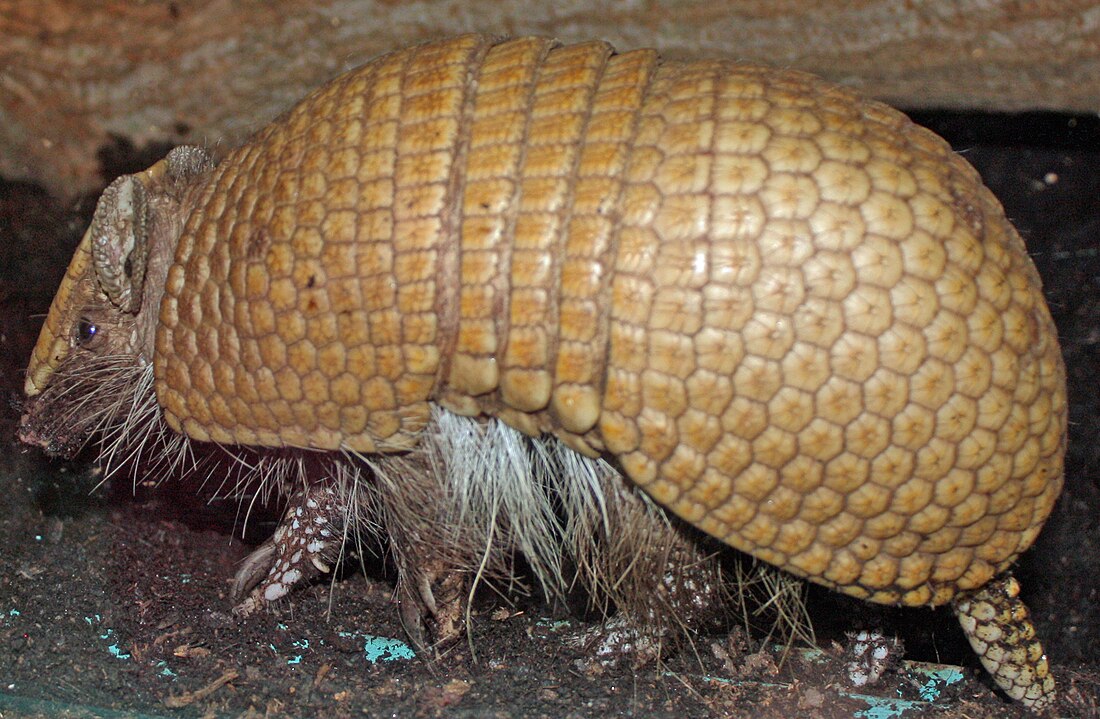Tolypeutes
Genus of mammals belonging to the armadillo order of xenarthrans From Wikipedia, the free encyclopedia
The genus Tolypeutes contains the two species of three-banded armadillos. They are restricted to open and semi-open habitats in South America.
| Tolypeutes | |
|---|---|
 | |
| Southern three-banded armadillo | |
| Scientific classification | |
| Domain: | Eukaryota |
| Kingdom: | Animalia |
| Phylum: | Chordata |
| Class: | Mammalia |
| Order: | Cingulata |
| Family: | Chlamyphoridae |
| Subfamily: | Tolypeutinae |
| Genus: | Tolypeutes Illiger, 1811 |
| Type species | |
| Tolypeutes tricinctus | |
| Species | |
|
See text | |
 | |
Of the several armadillo genera, only Tolypeutes rely heavily on their armor for protection. When threatened by a predator, Tolypeutes species frequently roll up into a ball. Other armadillo species cannot roll up because they have too many plates. This species is endangered due to hunting and deforestation of its native Brazilian habitat. They lack the ability to dig burrows like their competitors, instead relying on abandoned ones. Deforestation is a critical concern because it reduces available burrows, leaving them exposed to predators and human activity.
Species
There are two recognized species:[1]
| Image | Scientific name | Common Name | Distribution |
|---|---|---|---|
 | Tolypeutes matacus (Desmarest, 1804) | Southern three-banded armadillo | northern Argentina, southwestern Brazil, Paraguay and Bolivia |
 | Tolypeutes tricinctus (Linnaeus, 1758) | Brazilian three-banded armadillo | Brazil |
References
External links
Wikiwand - on
Seamless Wikipedia browsing. On steroids.
